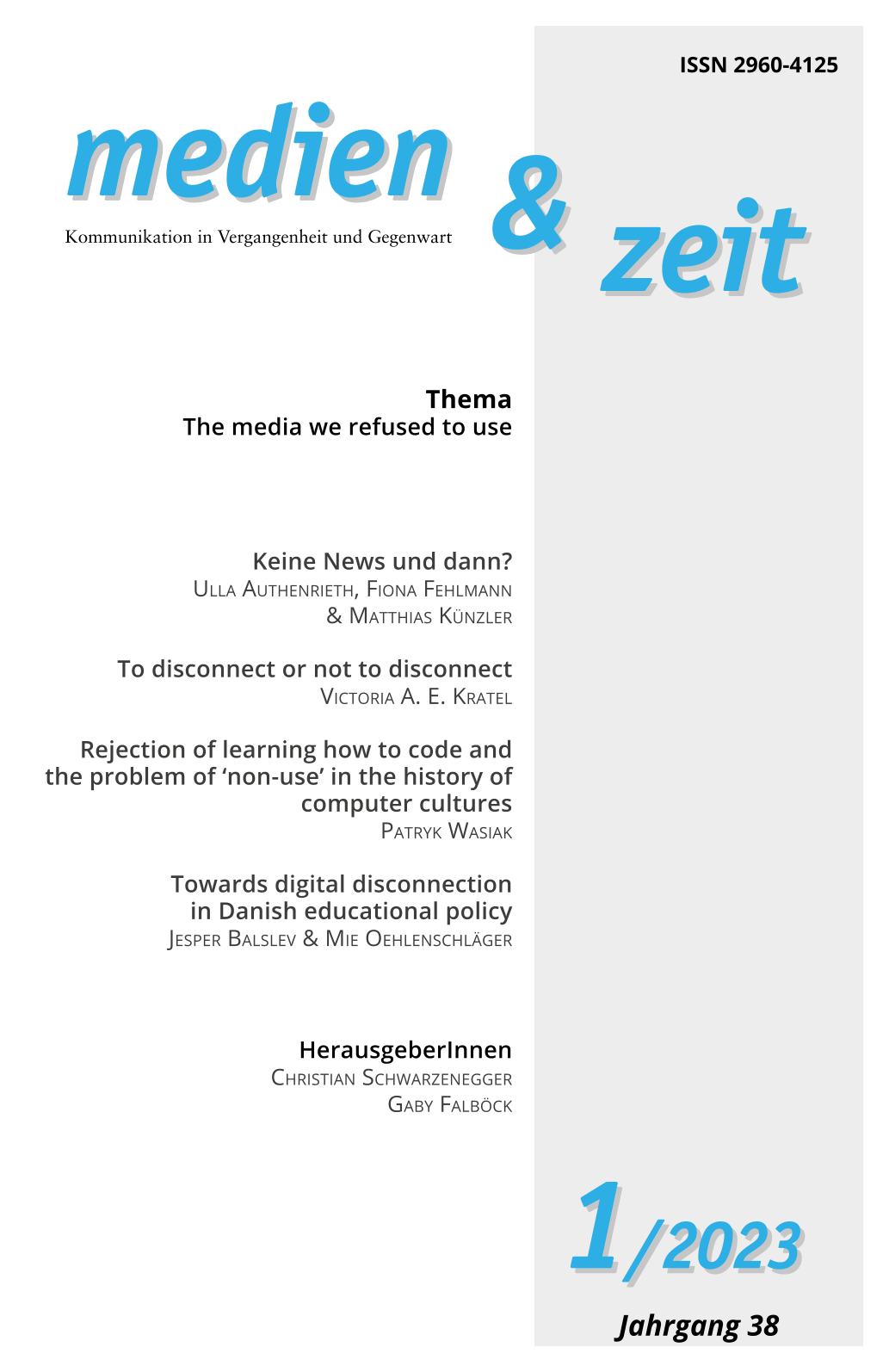Rejection of learning how to code and the problem of ‘non-use’ in the history of computer cultures
Schlagworte:
non-use, programming, computer culture, retroprogramming, computer literacy, LOGO, learn to codeAbstract
This paper investigates how a host of social actors, such as computer science experts and educators, discursively constructed both positively valued ‘user-programmers’ and negatively valued ‚non-programmers,‘ that is computer users who reject the practice of writing programs on their computers. I argue that the central theme of such a strategy was user agency and the question of having control over the technology that one is using in everyday life. Firstly, I investigate two key themes of the discursive construction of non-programmers in the era of the microcomputer of the 1980s, the discourses towards economies and social development related to computer literacy programs, and next, the key role of programming as a developmental tool for children’s education. Later, I compare that historical era with the contemporary ‘learn to code’ movement and investigate how it outlines the disadvantages of the neglect of learning programming.
Downloads
Veröffentlicht
Zitationsvorschlag
Ausgabe
Rubrik
Kategorien
Lizenz
Der Zugang zu den Artikeln in der Zeitschrift medien & zeit ist öffentlich und kostenlos, ohne Kosten für die AutorInnen und steht allen Leser*innen unter der Creative Commons Attribution-NonCommercial-NoDerivatives 4.0 Lizenz zur Verfügung. Die Rechte für die Beiträge liegen bei den jeweiligen Autor*innen (no apc) .



